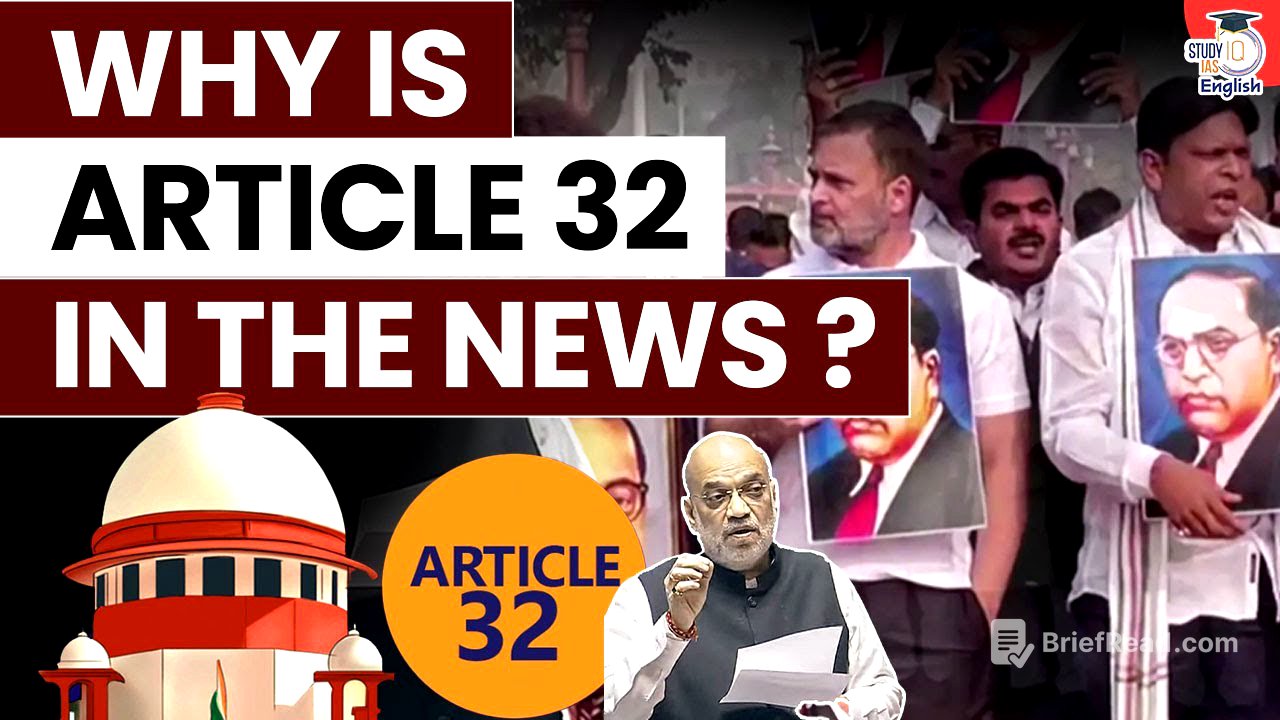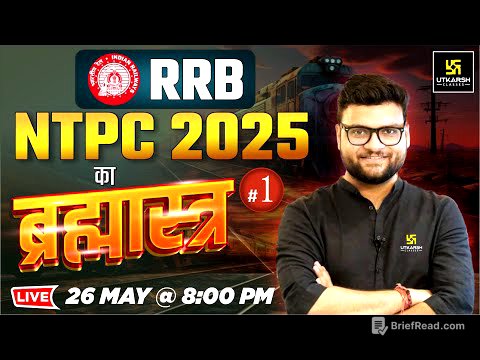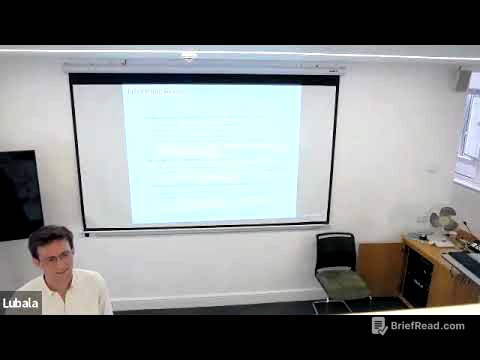TLDR;
This video discusses Article 32 of the Indian Constitution, which guarantees the right to constitutional remedies, allowing citizens to approach the Supreme Court directly for the enforcement of their fundamental rights. The video highlights a recent debate regarding whether state governments can invoke Article 32 to challenge the actions of governors who delay bills passed by state legislatures. It touches on the powers of the Supreme Court to issue writs, the arguments from both the central and state governments, and the implications for the balance of power between them.
- Article 32 is the "heart and soul" of the Indian Constitution, ensuring the enforcement of fundamental rights.
- A current debate questions whether state governments can use Article 32 against governors delaying legislative bills.
- The central government argues Article 32 is meant for individual citizens, not state entities.
Introduction to Article 32 [0:05]
Article 32 of the Indian Constitution, found within Part III which addresses fundamental rights (Articles 12-35), is considered the most important. Dr. BR Ambedkar, the architect of the Indian Constitution, regarded Article 32 as the very heart and soul of the constitution because it provides the right to constitutional remedies. This means that every Indian citizen can directly approach the Supreme Court to seek enforcement of their fundamental rights, which cannot be taken away by any authority.
Constitutional Remedies and Writs [1:06]
Article 32 provides a solution to the problem of potential infringement of fundamental rights. The Supreme Court and High Courts (under Article 226) can issue writs to protect these rights. Key writs include Habeas Corpus (ensuring production of an arrested person before a magistrate), Mandamus (compelling a government officer to perform their duty), Prohibition, Certiorari, and Quo Warranto. These writs are orders from the Supreme Court to protect citizens' fundamental rights, which are essential knowledge for the UPSC exam, particularly GS paper 2 on polity and governance.
Current Controversy: States vs. Governors [4:17]
A debate has emerged between the government and the Supreme Court regarding states' rights to invoke Article 32. The core issue is whether a state can approach the Supreme Court under Article 32 when governors delay acting on bills passed by the state legislature. The Supreme Court has questioned governors' practice of indefinitely holding bills, which can hinder the legislative process. This situation has brought Article 200 of the Indian Constitution into focus, as states argue that governors in opposition-ruled states are causing legislative delays.
Arguments and Perspectives [6:29]
States argue that governors are undermining the authority of elected state legislators by withholding assent to bills for extended periods. They question why they cannot use Article 32 to enforce their rights to make laws. The Supreme Court is considering imposing a time limit on how long a governor can delay a bill. However, some argue that setting such a limit would be unconstitutional, potentially conflicting with the basic structure doctrine established in cases like Kesavananda Bharati.
Central Government's Stance [8:40]
The central government opposes allowing states to use Article 32, asserting it is intended for individual citizens and civil society groups. They argue that governors have the discretion to take time on bills, refer them to the President, or pass them, and that the issue is a legislative controversy, not a judicial one. Therefore, they believe the Supreme Court's involvement is unwarranted.
Question for the Day [9:51]
The video concludes with a practice question related to Article 32, testing the viewer's understanding of its provisions and scope. The question covers who can approach the Supreme Court, the types of writs the court can issue, and whether Article 32 is a fundamental right in itself.









